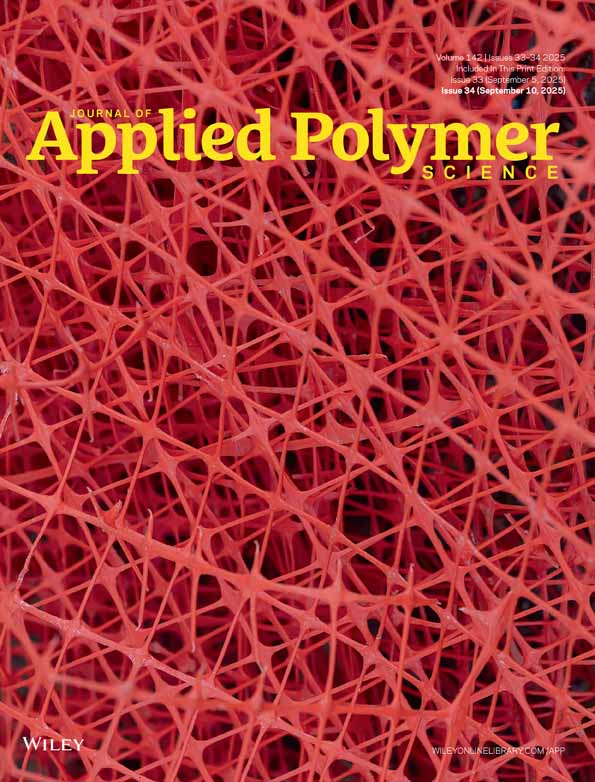Greffages mecanochimiques sur le polychlorure de vinyle. III. Stabilitéa thermique des polymègeres modifiéas
Abstract
The mastication of poly(vinyl chloride) (PVC) in presence of monomers causes important changes of the thermal stability of the polymer when the last one possesses a basic character (e.g., 2-vinylpyridine). The dehydrochlorination rate is greatly increased, even if the monomer is present in only small amounts. In the most cases (styrene, acrylic ester) a better thermal stability is observed with respect to the acceleration of the dehydrochlorination, which is retarded or even suppressed. Infrared spectroscopy and differential thermal analysis show that the improved stability is due to an improved crystalline organization. When mastication causes the polymerization of the monomer (methyl methacrylate), degradation of the PVC part and depolymerization of the rafted part are observed simultaneously; this fact supports a radical mechanism for the thermal degradation of the PVC.




